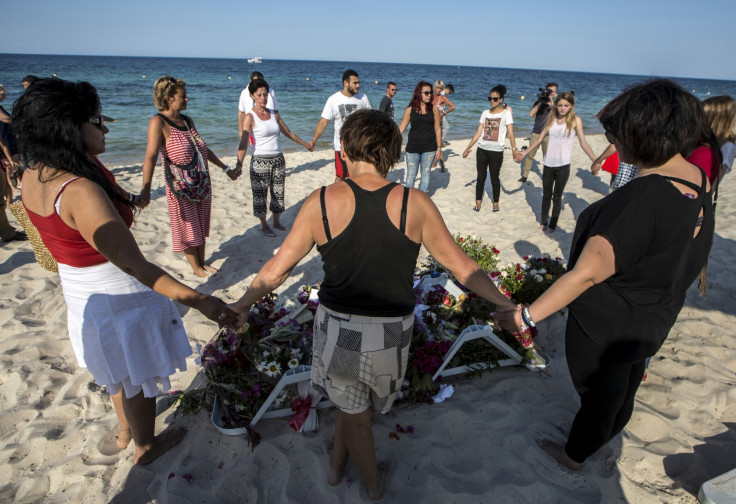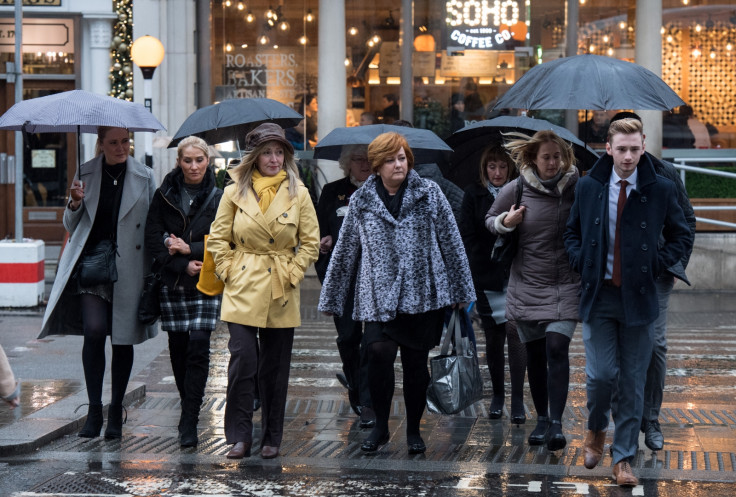Judge condemns 'cowardly' Tunisian police as British Sousse victims given 'unlawfully killed' ruling
Judge rejects neglect ruling for those who were killed in the 2015 seaside terror attack.

A British coroner has said he will rule the 30 British people who died in the 2015 terrorist attack in Tunisia were "unlawfully killed" while condemning police actions of the day.
The families of those who died at the seaside resort of Sousse had pushed for a "neglect" conclusion after they accused tour operator TUI of failing to adequately protect their guests.
The coroner, Judge Nicholas Loraine-Smith, had previously ruled out a neglect hearing before delivering his ruling at the Royal Courts of Justice in London as the holidaymakers were not "dependant" on the travel agency or the hotel at the time of their deaths.
The seven-week inquest sought to determine how much the UK Government and travel firms were aware about the potential risk of a terrorist attack against holidaymakers in the area.
Tunisian police were also accused of "deliberately and unjustifiably" delaying their response to the shooting, only arriving to shoot dead gunman Seifeddine Rezgui Yacoubi after he had already murdered 38 people, more than 40 minutes after the shooting started.
During the inquest hearing, Loraine-Smith described the actions of police on the day of the shooting as "at best shambolic, at worst, cowardly".
He said: "They had everything they required to confront the gunman and could have been at the scene within minutes. The delay was deliberate and unjustifiable."
The coroner said despite the hotel staff or its owners not been given training on what to do during a terrorist attack despite warnings one could have occurred, there wasn't anything that they could have done during the shooting that would "possibly made a difference".
"The simple but tragic truth in this case is that a gunman armed with a gun and grenades went to that hotel intending to kill as many tourists as he could," Loraine-Smith added.
Yacoubi carried out the massacre four months after Islamist terrorists killed 22 people in a mass shooting at the Bardo National Museum in the Tunisian capital of Tunis.
Lawyers for the families claim TUI did not take terrorism warnings from the UK Foreign Office seriously enough, claiming holidaymakers were told the country is "100% safe". The families of the victims are now launching claims for damages against the company.

Andrew Richie QC, representing families of 22 of the British victims, said following the verdict: "TUI said they were unaware of a circular letter from the country's minister of tourism dated 25 March 2015 stating that all hotels had to tighten up their security, including installing adequate CCTV cameras with a control room and guards on all gates.
"Many of the families gave evidence that they were unaware of the Foreign Office travel advice that there was a 'high threat from terrorism' in Tunisia and/or were unaware of the detailed content of the travel advice and that neither TUI's 2015 written brochure nor their 2015 website informed them of the content of the FCO travel advice before they booked.
"The coroner found that if some had been made aware of the FCO travel advice they may well not have gone. On behalf of the families, I will now make further submissions to the coroner about a report aimed at preventing future deaths and in relation to the FCO's Travel Aware campaign."
Speaking outside the court, Nick Longman, managing director of the UK branch of tour operator TUI, said the company is "so very sorry for the pain and loss those affected have suffered". He added: "Over these last few weeks we have heard very personal and very moving accounts of what happened during and after the terrorist attack.
"We have now heard the coroner's findings and his comments regarding the provision of security and visibility of travel advice.
"These are complex matters and we have already taken steps to raise awareness of the FCO's Travel Aware campaign. Together with the travel industry in light of these comments we must now take some time to further reflect on these areas.
"On that day the world changed. As an industry we have adapted and we will need to continue to do so."
The Foreign Office still advises against all travel to four areas of Tunisia and all but essential travel to the rest of the country as the threat of a terrorist attack remains high.
The 30 Britons killed in the Sousse attacks makes it the UK's biggest loss of life from a terrorist attack since the 7/7 London bombings in 2005.
© Copyright IBTimes 2025. All rights reserved.




















